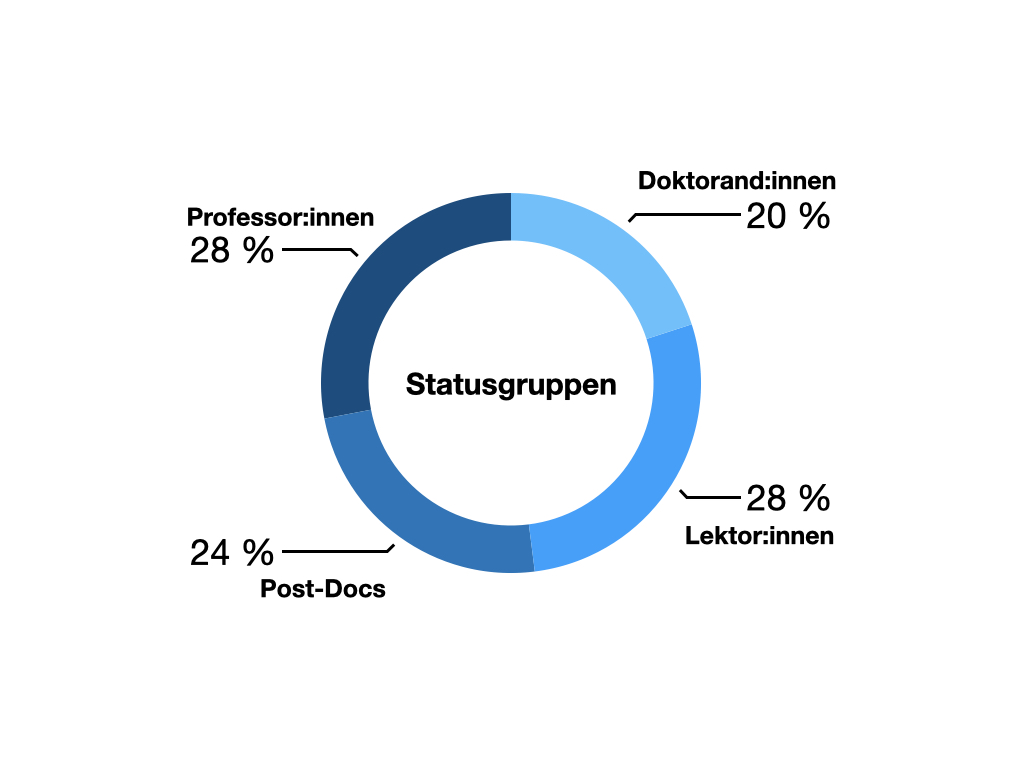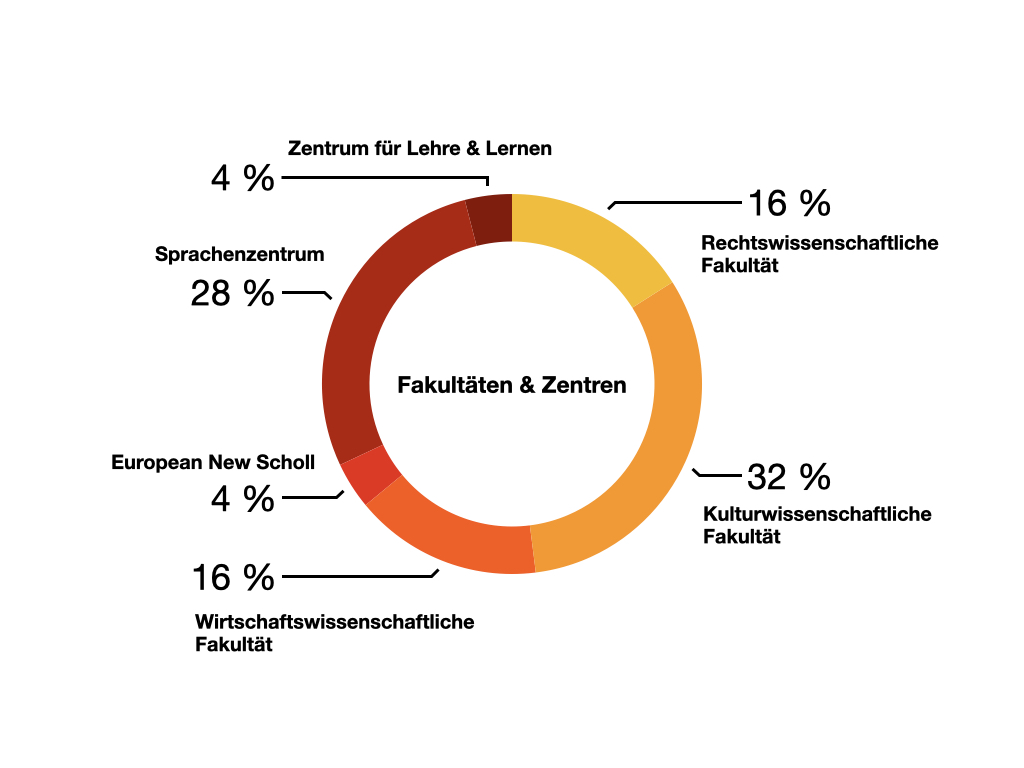Co-operation groups
Cooperation groups and project assignment
▸ How did the cooperation groups work?
Participants in cooperation groups:
- worked together on their teaching ideas for 90 minutes every fortnight for a year
- tested these in teaching and published the results
- received student feedback
- were able to take part in an accompanying programme with further training workshops and coaching
Detailed information on the course of the previous cooperation groups can be found here.
If you have any questions, please write to us at: prokodil@europa-uni.de
▸What skills does PROKODIL teach?
We support Viadrina lecturers with the following competences:
- digital storytelling
- Gamification
- Explanatory videos
- OER
- Self-learning skills
- Instructional design
- peer feedback
▸ Who has participated in the cooperation groups so far?
▸ Open Educational Resources (OER)
The Digital Teaching Cooperation Groups programme strives to enrich the education system through the use and promotion of Open Educational Resources (OER). These freely accessible teaching and learning materials support teachers and learners alike by making educational content widely available free of charge. PROKODIL focuses on the development and dissemination of practical OER to make education more effective and accessible.
The OER created in the project are presented and made available here.
Project mission and self-image
Project mission and self-image
1. our programme is aimed at all lecturers at the European University Viadrina
2.
2 We want to promote the (further) development of good teaching, regardless of the face-to-face or online format of the courses.
3 We are convinced that successful teaching concepts are combinations of synchronous, asynchronous and hybrid formats. The juxtaposition of face-to-face versus online is not expedient.
4. our programme creates a free space in which lecturers of all status groups can exchange ideas about their teaching and collaborate on an interdisciplinary basis.
5. well thought-out teaching enriched with modern methods also benefits students and trains the professional and digital skills of all.
6. learning scenarios with digital components enable individualised learning paths for increasingly globally networked students and thus correspond to the different lifestyles of today's students.
7. courses in which digital tools are used sensibly enable new forms of participation and prepare students for the challenges of today's and tomorrow's professional world.
8. we are in favour of recognising the development of high-quality and contemporary courses more strongly, e.g. by providing relief funds.Testimonial
Participant statement
From Dr Tomasz Rajewicz
& Voices from the student body:
- I believe universities need more teachers like her, who bring modern learning approaches to the students.
- Starting papers doesn’t feel painful anymore. She motivated me not to fear academic writing.
Do it like Prof Dr Blending!
Here you will find our programme explained in a short laying technique video.
Programme Cooperation Groups Digital Teaching
PROKODIL
- Logenhaus, Logenstraße 11, Room K10
- Postal address: Große Scharrnstraße 59, 15230 Frankfurt (Oder)
- 0335 / 55 34 2442
- prokodil@europa-uni.de
Team:
Anna Ast
Dr Christin Barbarino
Dr Lena Hotze
Scientific management:
Prof Dr Katrin Girgensohn

